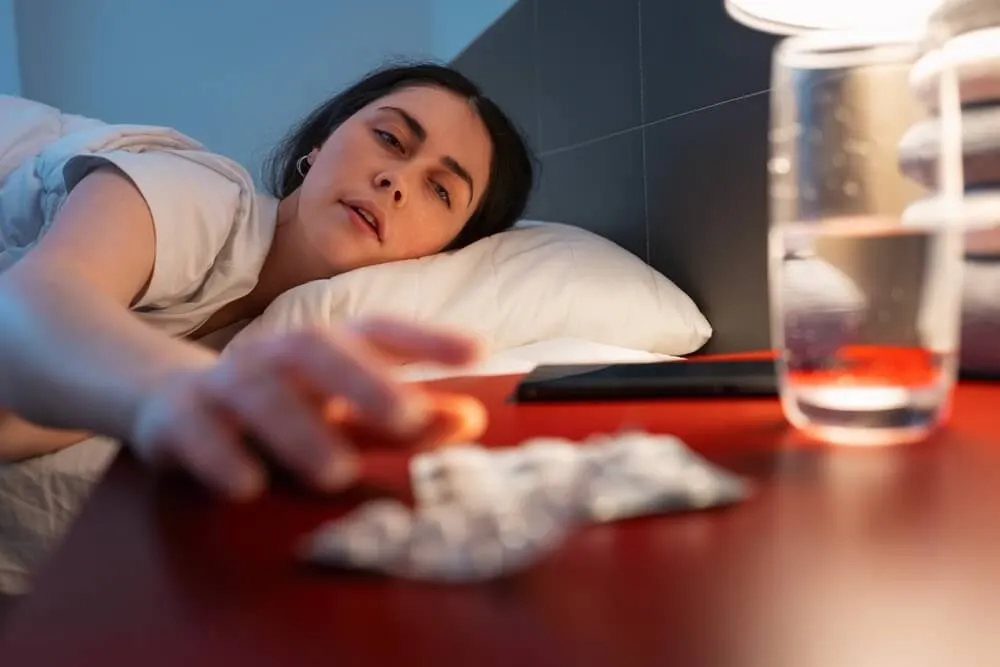5 Sleep Remedies That Might Do More Harm

The Quest for Better Sleep: Are You Making It Worse?
We’ve all been there—tossing and turning, staring at the ceiling, and wishing for just a few hours of restful sleep. In our quest for better sleep, many of us turn to various sleep remedies. But what if I told you that some of these popular solutions might do more harm than good? Let’s dive into five common sleep remedies that could be sabotaging your sleep health instead of enhancing it.
1. Over-the-Counter Sleep Aids: A Double-Edged Sword
Over-the-counter sleep aids are often the go-to for those desperate for a good night’s rest. They promise quick relief, but the reality can be quite different. Many of these products contain antihistamines, which can lead to grogginess the next day and even disrupt your natural sleep cycle.
- Potential Risks:
- Dependency: Relying on these aids can create a cycle of dependence, making it harder to sleep without them.
- Side Effects: Drowsiness, dry mouth, and even cognitive impairment can occur.
Instead of reaching for that pill, consider exploring natural sleep aids that promote better sleep hygiene without the risks.
2. Alcohol: The Myth of the Sleep Inducer
Ah, the classic nightcap. Many believe that a drink before bed can help them drift off. While it might make you feel sleepy initially, alcohol disrupts your sleep cycle, leading to fragmented sleep and reduced REM cycles.
- What You Might Experience:
- Night Sweats: Alcohol can raise your body temperature, leading to uncomfortable nights.
- Frequent Awakenings: You may find yourself waking up multiple times, leaving you feeling unrested.
If you’re looking for a better alternative, herbal teas like chamomile or valerian root can be soothing and promote relaxation without the hangover.
3. Sleep Positioning: The Wrong Angle
Did you know that how you position yourself in bed can impact your sleep quality? While some swear by sleeping on their backs, others may find it uncomfortable and lead to snoring or sleep apnea.
- Consider This:
- Side Sleeping: This position can help reduce snoring and improve breathing.
- Stomach Sleeping: While it may feel cozy, it can strain your neck and spine.
Experimenting with different sleep positions and using supportive pillows can significantly enhance your sleep quality.
4. Excessive Napping: A Sleep Saboteur
Napping can be a great way to recharge, but too much daytime sleep can interfere with your nighttime rest. If you find yourself napping for hours, it might be time to reassess.
- Guidelines for Napping:
- Keep it Short: Aim for 20-30 minutes to avoid grogginess.
- Nap Early: Try to nap before 3 PM to prevent it from affecting your nighttime sleep.
By limiting naps, you can help ensure that your body is ready for a full night’s rest.
5. Sleep Hygiene Neglect: The Silent Sleep Killer
Good sleep hygiene is crucial for quality sleep, yet many overlook it. Simple habits like a consistent sleep schedule, a dark room, and limiting screen time can make a world of difference.
- Tips for Better Sleep Hygiene:
- Create a Routine: Go to bed and wake up at the same time every day.
- Limit Blue Light: Reduce screen time an hour before bed to help your body wind down.
By prioritizing these habits, you can significantly improve your sleep quality and overall health.
Final Thoughts: Rethink Your Sleep Solutions
In the pursuit of better sleep, it’s essential to be aware of the remedies you choose. While some may seem harmless, they could be hindering your sleep health. By exploring safer alternatives and adopting better sleep hygiene practices, you can pave the way for a more restful night.
Remember, your sleep is vital for your overall well-being. So, take the time to evaluate your sleep remedies and make informed choices for a healthier, happier you.





